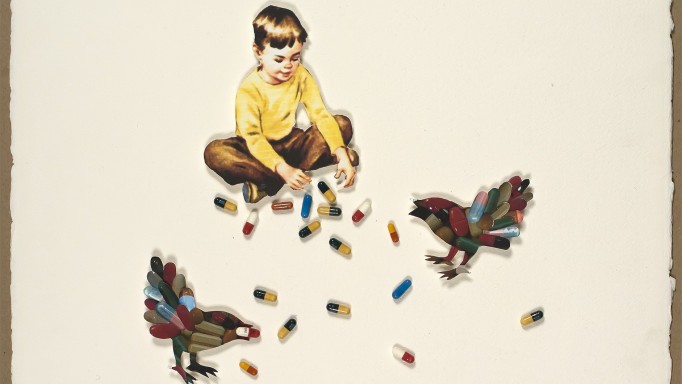Write a Comment
8 Comments
Current HPV vaccines prevent infection so are of no use in individuals already infected. So it's a good idea to vaccinate boys and younger men before the onset of sexual activity. Still, you ask a very good question. In the study I commented on, 38.2% of the men had HPV- 16 at baseline, and 24.5% had HPV- 18. So, the majority of men were free from these high risk types when entering the study. Of course one cannot extrapolate from this group of 247 men, recruited in Montreal. (Their median age was 43, with a median CD4 count of 380). It's reasonable to accept that at any particular time, there's a realistic chance that a significant number of men at risk will be free from high risk HPVs, particularly types 16 and 18, the likelihood decreasing with increasing age and experience. I don't know if there are any prospective studies of HPV vaccination in HIV positive MSM who are free from the high risk HPVs present in the vaccines. I'm unaware of any significant harmful effects of the vaccine, and for the moment, until we have study results, HPV vaccination seems to be a very reasonable option for those able to afford it. It may be too late to be of use because infection with high risk HPVs may have already occurred, but it causes no harm and may benefit some. Of course we cannot know if this is so until prospective studies are completed. But even without testing for specific HPV types, a choice to recieve an HPV vaccine seems reasonable. Even though we cannot know it will be of benefit (only studies can determine this), there seems to be no down side - of course apart from cost. Considering the gravity of a diagnosis of anal cancer, for those at risk, HPV vaccination seems to be a perfectly reasonable option even in the absence of proof that it will be of benefit. It causes no harm - apart from cost, and may be of benefit to some. . For more information on MSM and HPVs and the charcteristics of men in Montreal participating in the prospective study take a look at this article: "Prevalence, Clearance, and Incidence of Anal Human Papillomavirus Infection in HIV-Infected Men: The HIPVIRG Cohort Study" http://jid.oxfordjournals.org/content/199/7/965.full.pdf+html Added March 25: A study has in fact been completed on the effects of HPV vaccination in preventing AIN – the precancerous changes in the anus described in my blog entry. Gardasil was effective in preventing AIN associated with high risk HPVs in men younger than 26 who had not been infected with the vaccine HPV types. The FDA approved Gardasil for the prevention of anal cancer in individuals aged between 9 and 26. http://www.fda.gov/NewsEvents/Newsroom/PressAnnouncements/ucm237941.htm But as I noted, there is a good chance that significant numbers of men at risk who are older than 26 will be free of some HPV types 16, 18, 6 and 11. So even without testing for specific HPV types, vaccination of older men at risk may well have a protective effect in some. Of course there will be no benefit in those already infected with all four of the HPVs in the vaccine, but apart from cost there is no down side.
I don't understand why HPV innoculation isn't being suggested/recommended for those of us who are at risk for anal infection. What's with that???
Thanks for this information. I have an appt. with my colon/rectal doc for my annual checkup tomorrow. I will re-visit the issue with him. I read the referenced report and will bring it along. There still seems to be a lack of a clear action plan for a high grade diagnosis, but perhaps some options are out there, such as the imiquimod.
Regular anoscopy to detect warts and treat them is part of good medical care. But detecting precancerous changes requires that cells be examined microscopically. Pap tests are the simplest way to obtain material to examine. There may be no treatment guidelines regarding the best way to deal with different grades of precancerous changes but that does not mean that there are no ways to manage such abnormalities. Unfortunately, as I mentioned treatment is much less effective than that of cervical dysplasia, with high rates of recurrence and difficulties following procedures. Non surgical approaches may be effective in some situations such as infrared coagulation or applying imiquimod. Also optimal screening methods and schedules are yet to be established. Just this month a pilot anal pap screening project was described. You can take a look here: http://www.liebertonline.com/doi/pdfplus/10.1089/apc.2010.0233 This is in it: "There is a possibility that HIV health care providers may be deterred from instituting any form of anal cancer screening for HIV- infected individuals by the perception that screening is time- and resource-consuming. The same could be said regarding the absence of reports of the benefits of such screening. A study such ours demonstrates the feasibility of anal Pap smear screening in routine HIV care that makes possible the early detection of precancerous and even cancerous lesions". If ever a research objective needed urgent prioritizing and all the support we can give to it is this: To improve the management of anal precancerous and local cancerous lesions that includes optimal screening procedures and treatment options. I'll end with a quote from the above article. "Until there is a consensus regarding anal Pap smear screening, HIV-infected patients need to know they are at risk of anal cancer, and anal health should be an issue of priority for HIV care providers to discuss with their HIV-positive patient".
My doc does the scope thing to check for recurrence of warts and to visually look for cancers, but says pap smear is a waste of time since there is no treatment guideline regardless of the result.
Giorgia, I too can't forget. This also brings back CRI, Tom, and all we did on 26th street more than 20 years ago!
Dr. Sonneband Just read your article in PIOZ and I thought to take this time to lt you know that you are in my thoughts constantly. You gave hope and help to those with AIDS - you especially took great care of my brother Jim. I will never forget you.










Tom Cassady
Dear Sirs: Thanks so much for the information, I am a 29+ year survivor of HIV/AIDS, at 58 I recently had a routine colonoscopy, and was diagnosed with AIN2....I had no idea there was a problem. Now I'm confronted with making a decision about what form of treatment to undertake. My gastroentorologist has referred me to a surgeon, who want to scrape away three of the four layers where these are located...and then I have other professionals in the HIV field who say that infrared oblation is the way to go...I'm confused, and not sure which route to take...anyone have any suggestions.
November 20, 2011